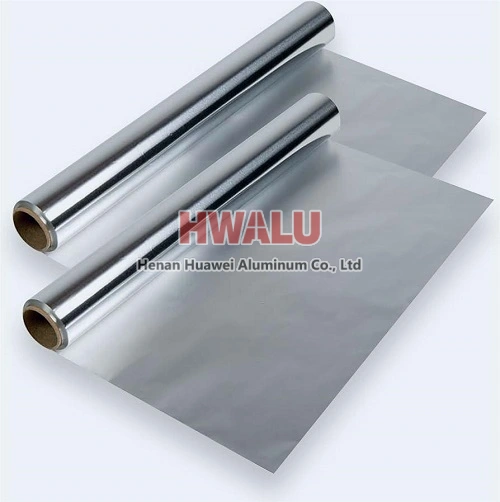What is aluminum foil for sealing Aluminum foil for sealing is a kind of aluminum foil used for sealing packaging. It is usually composed of aluminum foil and plastic film and other materials, and has good sealing performance and fresh-keeping performance. Aluminum foil for sealing is widely used in the packaging of food, medicine, cosmetics, medical equipment and other industries. Aluminum foil for sealing i ...
PTP aluminum Blister foil parameter Alloy 1235, 8011, 8021 etc Temper O( HO ), H18, etc Width 300mm, 600mm, etc Thickness OP: 0.5 - 1.5 g/m2 Aluminum foil: 20 micron ( 0.02mm ), 25 micron ( 0.025mm ), 30 micron ( 0.3mm ) etc HSL ( VC ):3 - 4.5 gsm Primer: 1gsm Surface treatment Laminated, printing, Single bright side, etc What is ptp aluminum blister foil ...
Alloy type of aluminum foil for cosmetics 8011 aluminum foil 8021 alloy aluminum foil 8079 aluminum foil alloy Where is aluminum foil for cosmetics used in cosmetics? 1-Packaging: Some products in cosmetics, such as facial masks, eye masks, lip masks, patches, etc., usually use aluminum foil packaging, because aluminum foil has good moisture-proof, anti-oxidation, heat insulation, fresh-keeping and ...
Alloy parameters of aluminum foil for chocolate packaging Chocolate packaging aluminum foil is usually composed of aluminum and other alloying elements to increase its strength and corrosion resistance. Alloy series 1000, 3000, 8000 series aluminum alloy Alloy state H18 or H19 hardened state Alloy composition pure aluminum containing more than 99% aluminum, and other elements such as silicon, ...
Aluminum foil for grills Aluminum foil for grilling is a versatile tool used in outdoor cooking. Grill foil is a thin, flexible sheet of aluminum that can be placed over your grill grates to aid in various aspects of grilling. Advantages of aluminum foil for barbecue packaging Aluminum foil is often used for barbecue packaging and has the following advantages: 1. Thermal conductivity: Aluminum foil has ...
Aluminum foil has the following advantages in food packaging: Barrier property. Aluminum foil has excellent resistance to water, air (oxygen), light, and microorganisms, which are important factors in food spoilage. Therefore, aluminum foil has a good protective effect on food. Easy processing. Aluminum has a low melting point, good heat sealing, and easy molding. Can be processed into any shape according to ...
Only China, the United States, Japan and Germany can produce double zero foils with a thickness of 0.0046mm in the world. From a technical point of view, it is not difficult to produce such thin foils, but it is not easy to efficiently produce high-quality double-zero foils on a large scale. At present, many enterprises in my country can realize the commercial production of double zero foil, mainly including: ...
Aluminum foil is a versatile material with a wide range of uses across various industries and households. Here are some common uses of aluminum foil: Packaging: Aluminum foil is widely used in packaging applications. It is used to wrap food items, such as sandwiches, snacks, and leftovers, to keep them fresh and protect them from moisture, light, and odors. It is also used for packaging pharmaceutical products ...
Packaging: food packaging, pharmaceutical packaging, cosmetic packaging, tobacco packaging, etc. This is because aluminum foil can effectively isolate light, oxygen, water, and bacteria, protecting the freshness and quality of products. Kitchen supplies: bakeware, oven trays, barbecue racks, etc. This is because the aluminum foil can effectively distribute the heat, making the food baked more evenly. In ...
1050 aluminum foil is made of 99.5% pure aluminum. It has high corrosion resistance, excellent thermal and electrical conductivity, and good formability. It is a common type of 1000 series aluminum alloy. Aluminum foil 1050 is also known as 1xxx series pure aluminum alloy, which has a wide range of applications in various aspects. What are the common applications of 1050 aluminum foil? Aluminum foil 1050 is use ...
Aluminum foil is a thin sheet of aluminum metal that has the following properties: Lightweight: Aluminum foil is very lightweight because aluminium metal itself is a lightweight material. This makes aluminum foil an ideal material during packaging and shipping. Good sealing: The surface of aluminum foil is very smooth, which can effectively prevent the penetration of oxygen, water vapor and other gases, s ...







